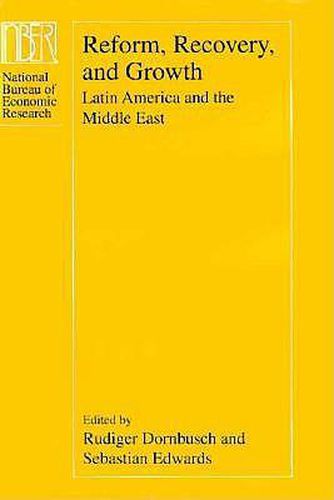Readings Newsletter
Become a Readings Member to make your shopping experience even easier.
Sign in or sign up for free!
You’re not far away from qualifying for FREE standard shipping within Australia
You’ve qualified for FREE standard shipping within Australia
The cart is loading…






The debt crisis of 1982 caused serious economic disruptions in most developing countries. This book explains why some of these countries have recovered from the debt crisis, while, more than a decade later, others continue to stagnate. Among the questions addressed are: what are the requirements for a stabilization policy that reduces inflation in a reasonable amount of time at an acceptable cost?; what are the effects of structural reforms, especially trade liberalization, deregulation and privatization, on growth in the short and long runs?; how do macroeconomic instability and adjustment policies affect income distribution and poverty?; and how does the specific design of structural adjustment efforts affect results? In this companion to Macroeconomics of Populism in Latin America , the authors confirm that macroeconomic stability has a positive effect on income distribution. The volume presents case studies that describe, in detail, the stabilization experiences in Brazil, Israel, Argentina and Bolivia, and also includes discussion of Chile, Mexico, Peru and Turkey.
$9.00 standard shipping within Australia
FREE standard shipping within Australia for orders over $100.00
Express & International shipping calculated at checkout
The debt crisis of 1982 caused serious economic disruptions in most developing countries. This book explains why some of these countries have recovered from the debt crisis, while, more than a decade later, others continue to stagnate. Among the questions addressed are: what are the requirements for a stabilization policy that reduces inflation in a reasonable amount of time at an acceptable cost?; what are the effects of structural reforms, especially trade liberalization, deregulation and privatization, on growth in the short and long runs?; how do macroeconomic instability and adjustment policies affect income distribution and poverty?; and how does the specific design of structural adjustment efforts affect results? In this companion to Macroeconomics of Populism in Latin America , the authors confirm that macroeconomic stability has a positive effect on income distribution. The volume presents case studies that describe, in detail, the stabilization experiences in Brazil, Israel, Argentina and Bolivia, and also includes discussion of Chile, Mexico, Peru and Turkey.